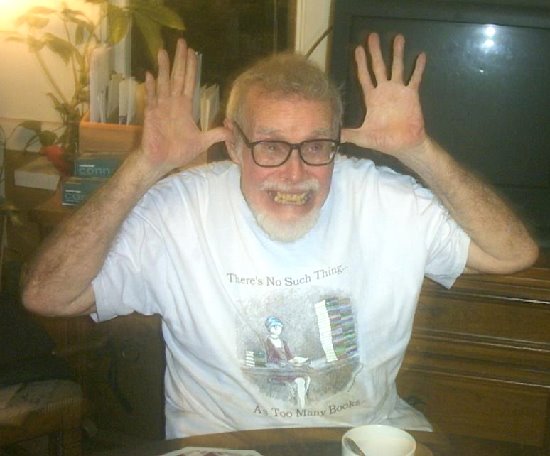
Having read somewhere that women’s comments on each other’s hair are the equivalent of men’s remarks about sports teams, that is, a ritualized “bonding” exchange, I’m trying to go deeper. Surely there are hidden meanings in women’s hair-related conversations! I think hairtalk is shorthand that women friends and even mere acquaintances use to describe their “spiritual” and/or psychological states, and sometimes to establish a hierarchy, a temporary pecking order, although the cultural “values” of styles and methods get contaminated by other factors and are never static. One exchange I had recently was a three-way. A woman who’d started CUTTING HER OWN hair very short was complimented (drastic changes, of course, trump everything). A comparison was made between her and another woman whose hair was a similar length, but because she was black, the “do” had a different look. Self-reliance was emphasized, and the manner in which one cuts one’s own hair was described. The African-American woman admitted that she had not cut her own hair, but acknowledged the wisdom and economy of doing so. Both women came to the conclusion that in the future they would go through a period of dreadlock. This, I think, was an important moment in the bonding process. The money-saving woman added that, following the period of dreadlock, a period of head-shaving would follow. The other woman did not respond directly, thus indicating that this was not a (nun-like?) passage she anticipated for herself. Meanwhile, the third party (me) advanced another economical (retirement-related) tack, that is, one of letting the locks grow and braiding them. The amazingly common denominator was ACTUALLY PLANNING THE FUTURE of our hairstyles to parallel life’s passages! Since none of us could know upcoming hair trends (which may have an influence), the plans were symbolic, and showed an acceptance of certain styles “meaning” certain renunciations, aspirations, roles. I must say that this type of “bonding” exchange seems "richer" than male reports of sports teams’ wins-losses/responses to wins-losses, because the females involved create most of the content themselves. I am willing to entertain arguments. And I know “richer” isn’t necessarily “better”!






